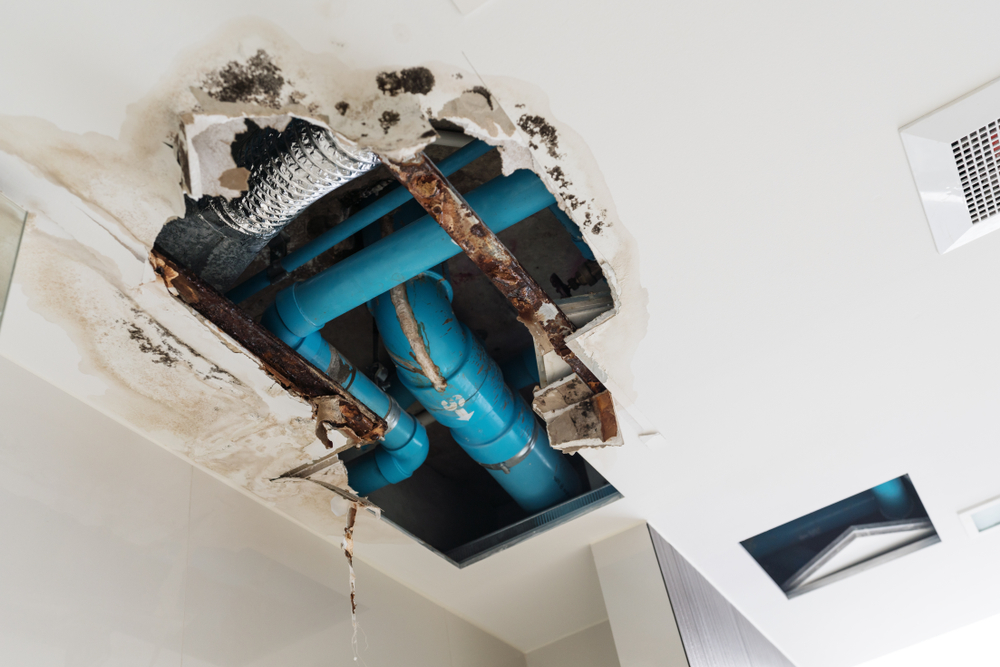Unit Owner vs. Association Dispute Regarding “Duty to Repair”

If you live in a community governed by an association – whether it is a condominium association or homeowner’s association – you may find yourself at odds with the association over certain issues. Or the association may find itself at odds with you over positions you want to take. This seemed by the dynamics of a recent appeal dealing with the duty to repair damage.
In this matter, a unit owner notified its condominium association over leaks and mold in its unit. A driving leak was caused by a leak from an upstairs unit. The association did not remediate the unit due to this leak and mold continued to spread. The owner sued the association claiming, among other things, the association breached the declaration of condominium and violated Florida’s Condominium Act. The association countered that because the leak was not caused by a “common element,” it had no duty to repair. The trial court entered summary judgment in favor of the association finding the association had no duty to repair damage since the leak was not caused by a common element, but instead, the upstairs’ unit.
Well, here is the question. Did the association have a duty to repair damages even though they were caused by a leak in the unit above?
When it comes to association disputes, everything should start with the governing documents. With a condominium, that would be the declaration of condominium.
A declaration of condominium is a contract between the unit owners and the association and is interpreted like any other contract. Id. “Where contractual terms are clear and unambiguous, the court is bound by the plain meaning of those terms.”
The association argues that Section 7.2 of the Declaration, which obligates the association to repair common elements, only applies to the extent it does not conflict with another provision of the Declaration. The association claims that Section 7.1, which enumerates the unit owners’ repair responsibilities, is such a conflicting provision. Section 7.1 provides that unit owners must perform repairs to their own units and specifies that this includes plumbing. But Section 7.1 only makes a unit owner responsible for repairs within the owner’s unit or to the unit’s Limited Common Elements.
The Declaration defines the boundaries of each unit as the lower surface of the unfinished ceiling and the interior surface of the walls and defines the common elements as any portion of the condominium property not included in the unit. Therefore, the space between the unfinished lower surface of Randy’s ceiling and the unfinished upper surface of the upstairs unit’s floor is a common element, as is the space between the unfinished interiors of [the owner’s] boundary walls and those of his neighbors. The common elements are the association’s responsibility to repair.
The Declaration makes no exception for what causes the damage, although the Declaration provides that the association may assess a single unit owner for the repair expense when the repairs result from the unit owner’s negligence. Thus, if a single unit owner’s negligence damages a common element, the Declaration allows the association to seek the repair expense from the negligent owner, but it does not excuse the association from its duty to repair the damaged common element.
Mcllenan v. Cypress Chase North Condominium No. 4 Association, Inc., 49 Fla.L.Weekly D1197a (Fla. 4th DCA 2024) (internal citations omitted).
Next, Florida’s Condominium Act comes into play.
Additionally, section 718.113(1), Florida Statutes (2021), clearly and unambiguously provides that “[m]aintenance of the common elements is the responsibility of the association.” “When the language of [a] statute is clear and unambiguous and conveys a clear and definite meaning, . . . the statute must be given its plain and obvious meaning.” The statute does not provide any exception for damage to the common elements caused by a specific unit owner.
Thus, the trial court erred in finding that the association had no duty to repair a common element solely because the damage originated from the upstairs unit. Because the association has the duty to repair the common elements no matter the cause of damage, several issues of material fact remain, such as whether the damage alleged by appellants was to common elements; whether and to what extent the association’s failure to remediate damage to the common elements caused damage to [the owner’s] unit; and the association’s other affirmative defenses.
Mcllenan, supra (internal citations omitted).
Thus, the association could not escape its obligation to repair damages to common elements regardless of the cause.
Please contact David Adelstein at dadelstein@gmail.com or (954) 361-4720 if you have questions or would like more information regarding this article. You can follow David Adelstein on Twitter @DavidAdelstein1.




